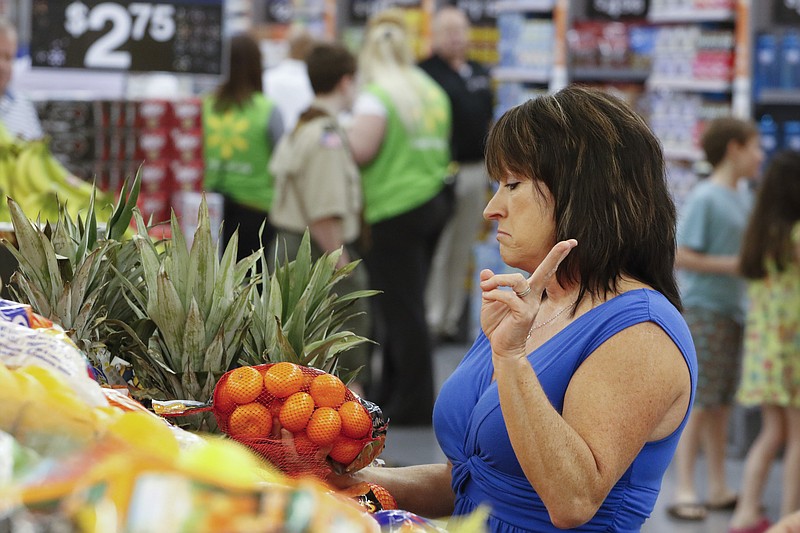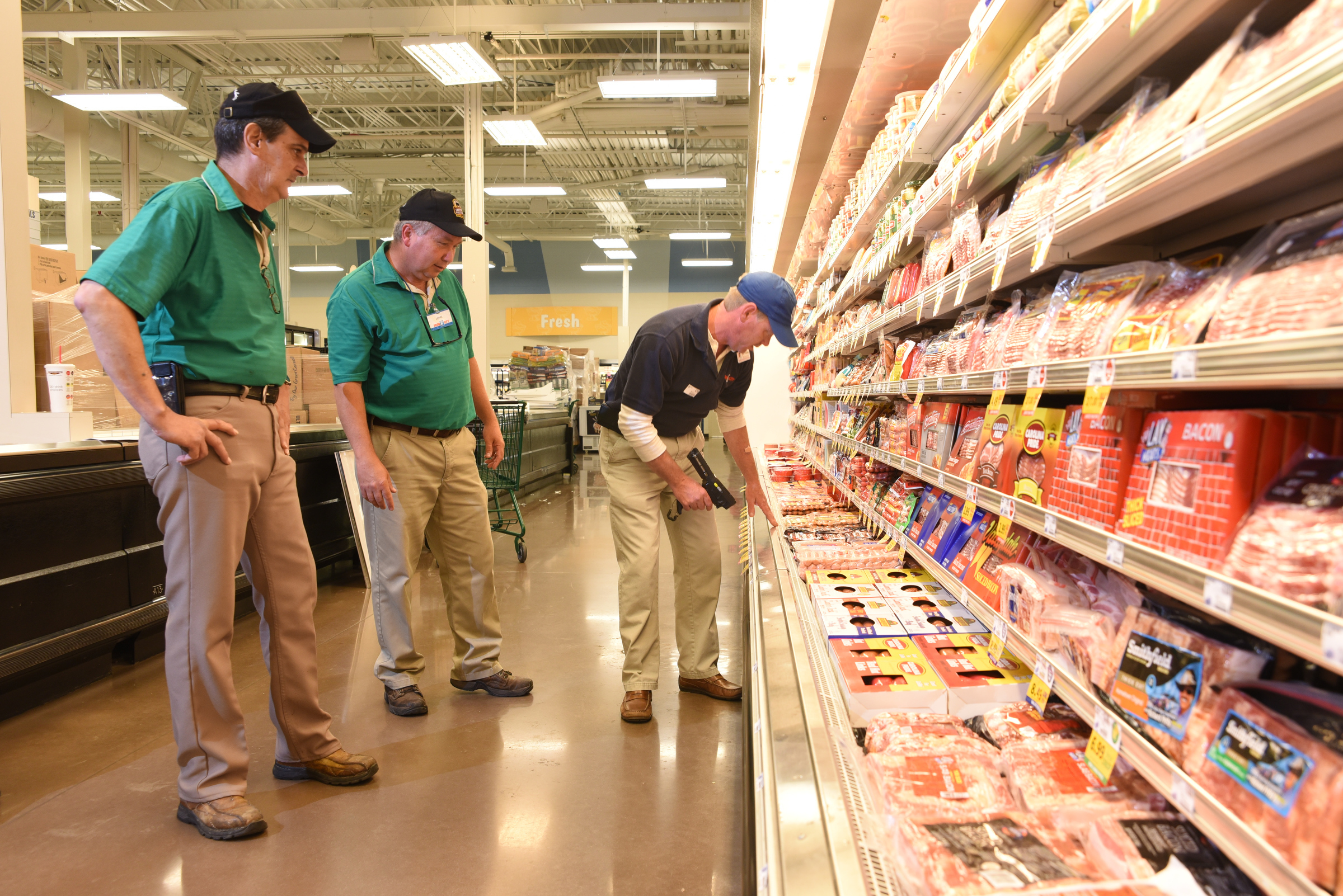By the numbers
212,000: Number of traditional food stores in the U.S.$571 billion: Sales of retail food and nonfood products annually91 percent: Share of food store sales in grocery stores0.08 percent: Grocery store sales growth, inflation adjustedSource: U.S. Department of Agriculture
Fast facts
* Wal-Mart is the largest U.S. retailer of grocery products at about $117.4 billion in 2013* Kroger is the second biggest at $76.7 billion* In 2013, the share of sales in the top 20 U.S. grocery retailers rose for the first time since the 2007-09 recession* Target was the 16th largest grocer in 2013Source: U.S. Department of Agriculture
Lucille and Bill Reed were checking out the first Wal-Mart Neighborhood Market to open in Chattanooga this month, and they came away impressed with the East Brainerd store.
But the retired couple said they already tend to buy their groceries at the Wal-Mart Superstore just a couple of miles away, a thought echoed by another customer.
"We mostly shop at Wal-Mart," Lucille Reed said.
The Chattanooga grocery scene is seeing its biggest changes in years as Wal-Mart ramps up a half-dozen neighborhood stores, Food City enters the market by buying 29 area Bi-Lo units, newcomer Harvest Grocery opens in Hixson and Publix continues its push in the market.
The businesses have stepped up their advertising, offering an array of sales, and touting a variety of customer-focused services in the fight for more grocery dollars.
"Everybody is intensifying their game," said Meg Major, an editor of the industry publication Progressive Grocer. "The competition is as fierce as in any class of retail trade potentially the fiercest."
Steven C. Smith, Food City's chief executive, said company officials are well on their way to rebranding the Chattanooga area Bi-Lo stores, which is expected to be finished next month.
"The more we learn, the more excited we are about [the Chattanooga market]," he said. "It's certainly a growing economy. Our goal is to drive more foot traffic and sell more groceries."
Smith said that Food City is lowering thousands of prices inside the former Bi-Lo stores.
"They needed a little bit of price sharpness," he said.
In addition, the Abingdon, Va.-based company plans to invest in its new stores, upwards of $40 million the first year, and it has upped its hiring to bolster service.
Food City said it plans to bring on an additional 15 to 25 more employees per store.
Jon Springer, retail editor for Supermarket News, said Food City's purchase allows the grocer to grow its franchise into a new market, and that the company has a reputation for running stores that are responsive to the communities in which they're located.
Springer said that for a lot of grocery chains, there isn't much room to grow with more stores in the markets in which they're already located, so they look for purchase opportunities.
"These expansions allow a company to spread their fixed costs over a greater number of stores and give them buying power to get the best price," he said.
Tim McClure, an owner of Harvest Grocery, said he doesn't necessarily see Food City, Wal-Mart and Publix as competition for his location, which bills itself as the largest independently owned natural and organic food store in the Southeast at 32,000 square feet.
"I think we have a different niche," he said. "We have a totally different product."
Business is "going good" so far, McClure said, adding that the store has focused on educating the public on how to eat healthy since it opened in early summer.
Looking ahead, he sees expansion plans in Harvest Grocery's future.
"Ultimately, our goal is to open four more stores in five years," McClure said. He said the grocer already has eyed a site in Nashville.
Steven Hamlet, manager of the Neighborhood Market on East Brainerd Road, said his and the other five such stores in the Chattanooga area will help Wal-Mart better compete.
"We want to gain a friendship relationship with customers," he said about the much smaller Neighborhood Markets compared to Wal-Mart's Supercenters. "The biggest objective is fitting these into the neighborhood."
Hamlet said the Neighborhood Markets are easier to get in and out of than a Supercenter, featuring "a fast, check-out experience." Also, each store is expected to create about 95 new jobs.
Major said Wal-Mart is "an omnipresent factor" in the grocery store business. Wal-Mart is the nation's largest U.S. retailer of grocery products, according to the U.S. Department of Agriculture.
"They're a formidable grocery competitor," she said.
But companies such as Food City have learned how to compete with the retailer, Major said.
"Food City is taking a more aggressive posture," she said. "It's about perfecting your game - making sure you're at the top of it."
For example, Food City plans to market gasoline in the Chattanooga area, with company officials saying that building fuel centers at or near its stores is a priority for the grocer and a big part of its business.
At the same time, Murphy USA is on a building spree of fuel centers, putting them up at Wal-Mart Supercenters and at Neighborhood Markets..
Contact Mike Pare at mpare@timesfreepress.com or 423-757-6318.

